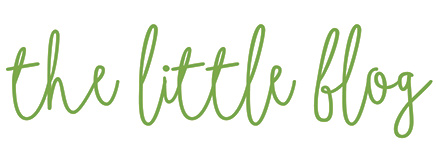Do you know where the world is going? What is going well? What isn’t? The last two years have not been great, and 2022 might be a real low point. However, from a longer-term perspective, things in many parts of the world and for many people around the world look more positive than ever before.
We don’t want you to look at the world through rose-coloured glasses. But we would like to direct your attention to a source of information that people are often unaware of.
And that is data on the state of the world and how it has changed as opposed to the daily headlines.
Naturally, we base our view on the state of the world on views, opinions and anecdotes that are readily available to us. That’s just human nature. And obviously, the daily news is just so much more readily available than long-term data on various development areas. So, we can lose sight of sweeping developments across the world that just don’t happen to take place in headlines. If poverty goes down a little bit every day, that’s – unfortunately – not worth a headline. Equally, if many regions in the world haven’t been to war for decades, that doesn’t make it to the headlines. Thus, we can fail to recognise that the world has actually changed for the better in many many aspects for millions of people.
That’s not to say that there can’t be setbacks in progress. It’s in the nature of progress that it doesn’t happen by itself. It needs us humans to make it happen. But there is progress in the long run. Knowledge accumulates. People and civilisations learn from mistakes – hopefully, usually.
The Sustainable Development Goals (SDGs), also known as the Global Goals, were adopted by the United Nations in 2015 as a universal call to action to end poverty, protect the planet, and ensure that by 2030 all people enjoy peace and prosperity. The 17 goals are integrated, acknowledging the strong interconnectedness of individual development areas. Extreme poverty was an economic problem. Children’s schooling was an education problem. Electricity was an infrastructure problem. But the SDGs help us realise that these goals are all about the same sustainable future. Children in poverty can’t do their homework if they don’t have electricity. And an investment in health and education will have so many positive ramifications on other targets such as gender equality, climate action, or decent work and economic growth. Health and education are the basis for achieving the other targets.
In 2020, 5 years into the SDGs, Ola Rosling of Gapminder, an independent foundation that uses reliable data to analyse the state of the world and fight common misconceptions, reviewed the development progress. He shows the progress we have made and highlights the areas where we are not moving fast enough or are even going in the wrong direction.
He reminds us that we humans have the ability to imagine a better world, even during crises. And that we are capable of collaborating to turn this imagination into reality. For ourselves and, most importantly, for our children.
Have a look at his video summary below on developments up to 2020.
With corona, followed by the Russian war and the current food crisis, there has been a step back. But hopefully, like many other crises in the past, this will be a temporary one. So let our imagination be strong and collaborate for a better future.
If you like to explore more data about the state of the world, go to gapminder.org. There are lots of interesting tools to explore and play around with. For example, you can get your global knowledge certificate: https://www.gapminder.org/upgrader/
Or explore dollar street, by yourself or with your kids. Discover how other families live around the world, depending on their income or their region. How do their pets live? What toys do children have? What do their toothbrushes look like? It’s a super interesting tour around the world, from the comfort of your sofa, that even little children might enjoy.
So, upgrade your worldview and keep collaborating for a better future!
